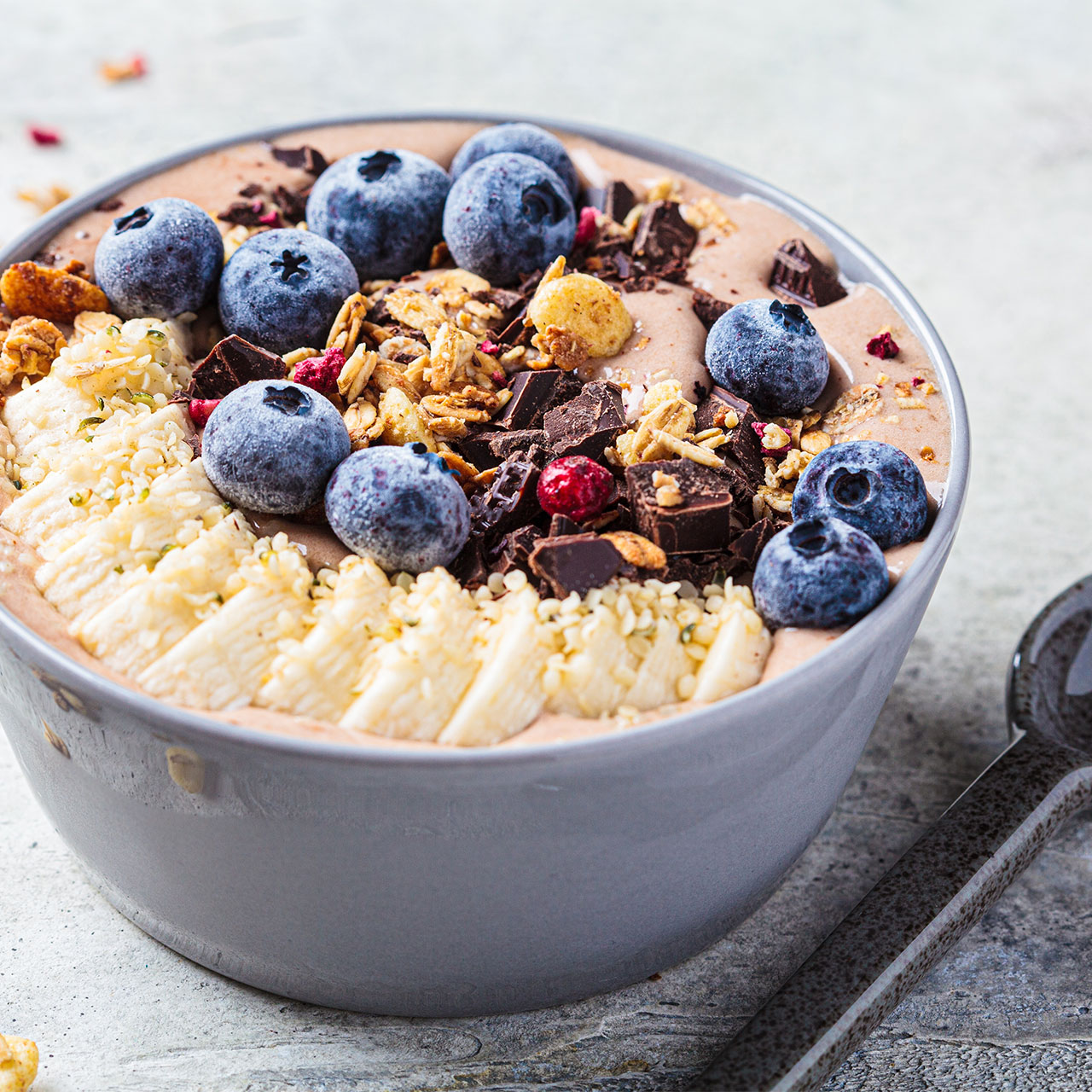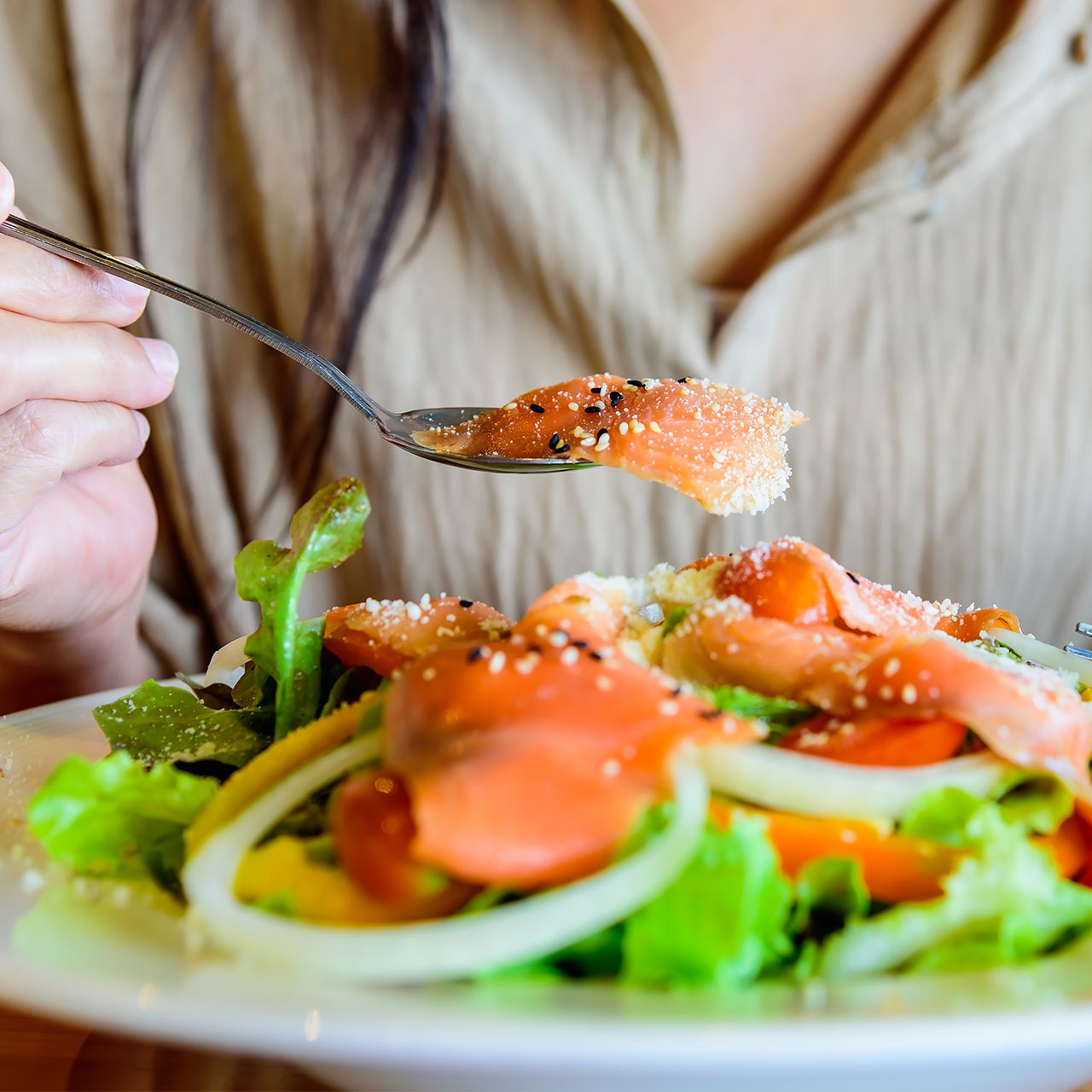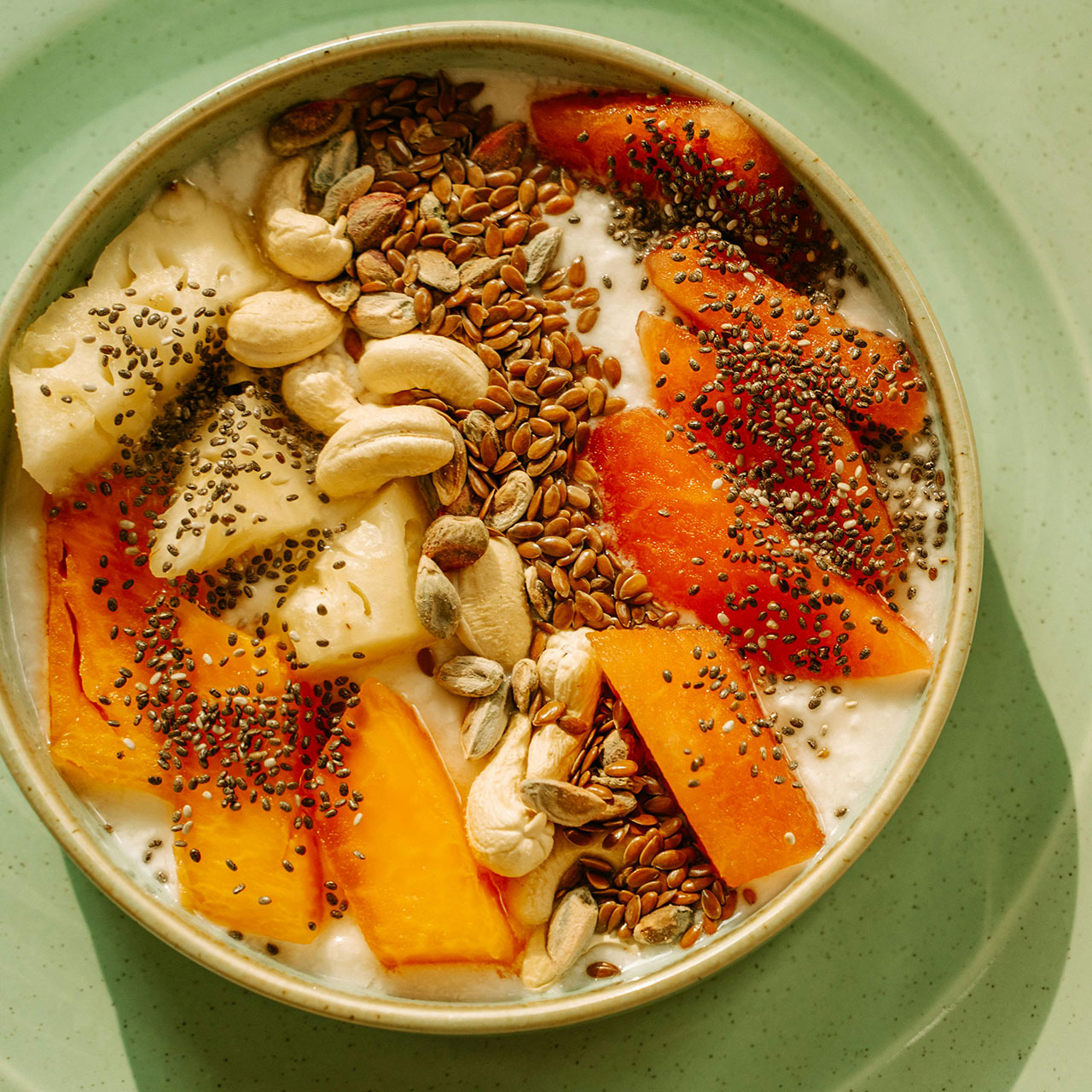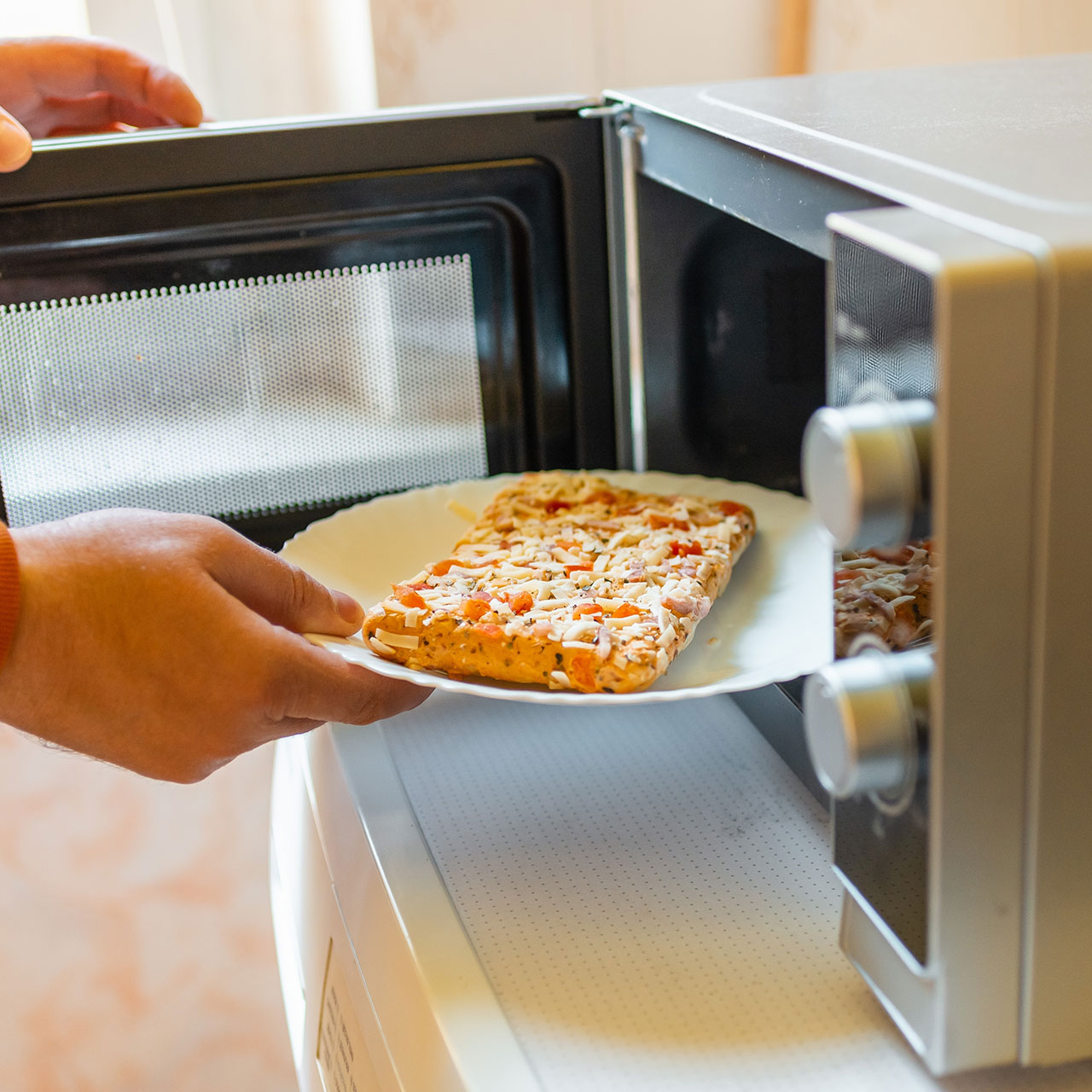When it comes to weight loss and digestion, it’s crucial to understand the importance of fiber. This commonly overlooked macronutrient is an essential part of your diet that can be especially helpful in weight loss and gut health—especially for those looking to reduce bloating.
If you’re trying to add more fiber to your diet for a flatter belly, we’ve got good news: there are so many fiber-packed foods to choose from. To discover a few of the best options for the job, we consulted health experts Dr. Sarah Mathis, a board-certified physician, Dana Ellis Hunnes, PhD, MPH, RD, Clara Lawson, RDN Alanna Kate Derrick, sports nutrition coach, and Dr. Mrinal Pandit, a registered dietitian, clinical nutritionist, and certified nutritional counselor. They told us that avocado, whole grains, chia seeds, artichokes, berries, beats, bananas, okra, lentils, brussels sprouts, sweet potatoes, and pears are all fantastic choices. Learn more about the benefits of each below.

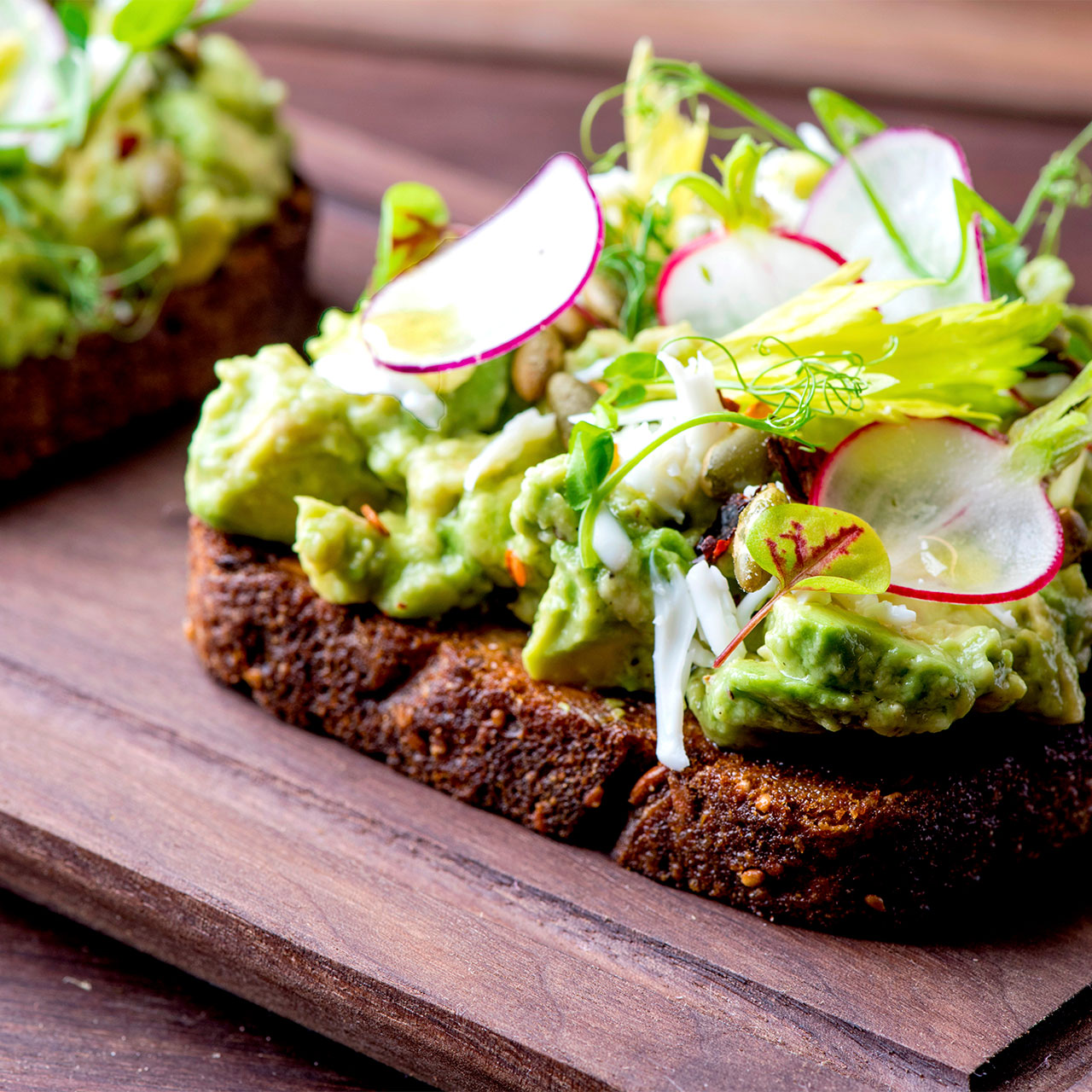
1. Avocado
Avocados aren't just a great source of healthy fats; they can also do wonder for your fiber intake. "Avocado is an excellent source of fiber, particularly soluble fiber, which aids digestion, promotes satiety, and helps regulate blood sugar levels," Dr. Pandit says, noting that they can contribute to feelings of fullness and aid weight management by reducing appetite. Additionally, the potassium content can reduce bloating caused by excess sodium intake.
"Enjoy avocado slices on whole grain toast or as a topping for salads and sandwiches to increase fiber and nutrient intake," she recommends. Count us in!

2. Whole grains
Whole grains are a crucial part of any balanced diet, especially if you're looking to up your fiber intake and shed pounds. It's always a good idea to skip refined carbs whenever possible and reach for things like oats, brown rice, quinoa, and whole wheat bread.
"These complex carbs take longer to break down compared to refined grains, keeping you satisfied while pushing out waste more efficiently," Derrick explains. Got it!

3. Chia Seeds
Whether you're whipping up chia seed pudding, sprinkling chia seeds into your oatmeal, or working these small but mighty superfoods into any number of other recipes, you can't go wrong with these guys. "Chia seeds are rich in soluble fiber," Dr. Pandit explains. "When consumed, they absorb water and form a gel-like substance in the digestive tract, promoting feelings of fullness and helping with digestion." She notes that they can even help with blood sugar regulation and hydration, both of which can help with weight loss and bloat prevention.
"Add chia seeds to smoothies, yogurt, or oatmeal to boost fiber and omega-3 fatty acids," she suggests. Or, "Make chia pudding by soaking chia seeds in almond milk or coconut water overnight and topping with fruit and nuts for a satisfying breakfast or snack." Yum!

4. Artichokes
Don't sleep on the power of artichokes! According to Derrick, "Artichokes are another all-star bloat-buster, providing around 10g of fiber per medium artichoke." Not bad at all! She notes that "the specific type of fiber artichokes contain actually feeds the good bacteria in your gut, improving overall digestion."
If you're looking to fit more artichoke into your diet, she recommends grilling artichoke hearts or enjoying steamed artichoke leaves dipped in zesty yogurt-based sauce. Sounds delicious!

5. Berries
The health benefits of berries are plentiful, and that's largely thanks to their incredible fiber content. When they taste so amazing, what's not to love? "Berries make a delicious high-fiber dessert or addition to overnight oats, parfaits, etc," Derrick says. "Raspberries contain an impressive 8g of fiber per cup. The antioxidants in berries also help reduce inflammation that can cause belly bloat." Eat 'em by the handful if you please—we know we do.

6. Beets
Beets are another high-fiber food that can help reduce fat accumulation. This root vegetable contains 3.4 grams of fiber, which can help relieve any digestive issues and lose weight. "Beets are high in fiber and can help with digestion, owing to their Betaine which is a digestive enzyme," Hunnes says. She notes that beets can help with hydration as well. "As we get older, we tend to drink less and stay less well-hydrated, which can stop us up," she continues. "[High-fiber] foods can really help, especially when they come from fresh vegetables, whole grains, fruits, etc, because they contain moisture in them as well." Noted!

7. Bananas
A great source of lasting energy, bananas are one of the best fibrous carbs to include in your day-to-day diet for a faster metabolism and less bloating. There’s a common misconception that because bananas are higher in calories than most fruits that they’re not good for you, but in fact they can provide more lasting energy than most, making them a great addition to your diet for weight loss. “There is a strong association between higher fiber intake and lower body weight. This is so since the body requires more time to digest fiber. For this reason, eating fiber keeps you full for a longer time and one doesn’t feel hungry and therefore, it becomes easier to avoid unhealthy snacking,” notes Lawson.
For bananas in particular, you’ll find that green bananas are actually the best option for weight loss, improving satiety over time. “Green unripe bananas might be more beneficial for losing weight since they have resistant starch, which is a carbohydrate that doesn’t digest easily. Eating two bananas regularly in your breakfast is highly recommended after 2 glasses of water,” says Lawson. Pair your banana with a source of protein such as eggs in the morning and you have a filling and delicious breakfast perfectly tailored for weight loss.

8. Okra
Mathis says that the often-overlooked okra is one high-fiber food you can snack on while you're on your weight loss journey. "It is so slimming and packed full of fiber!" she raves. And it's great for your digestive health, too. "Okra helps to slow down your digestion while also helping to 'clean' everything out," she continues.
If you're looking to get more okra in the diet, Mathis offers some advice. "Its taste is hidden when blended into smoothies or even healthy desserts," she says. "Or, you can add it into your soups or stews or even air fry it and make it super crispy!" Doesn't that sound tasty? Of course, you'll want to avoid breaded and oil-fried okra which can actually cause more fat buildup.

9. Lentils
Lentils make a fantastic source of plant-based protein—but they're also rich in fiber. In fact, Derrick says they're one of her "top fiber picks," and for good reason. "These nutrition powerhouses pack around 16g of fiber per cooked cup!" she raves. "The combination of protein and fiber makes lentils an incredibly satiating addition to salads, soups, and grain bowls. Simply rinse them, then toss into your dishes for an instant nutrient boost." Yum!
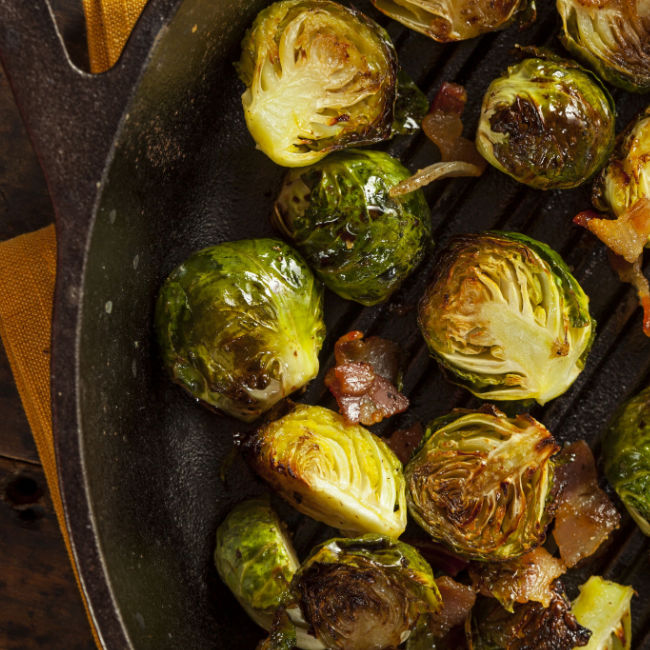
10. Brussels Sprouts
Brussels sprouts may have a reputation as a less-than-tasty food, but if you give them a chance, you may be surprised by how delicious they are! Plus, not only are they high in fiber and great for bloating, but they're also good for weight loss. "In addition to being delicious when roasted, Brussels sprouts are incredibly low in calories," says Destini Moody, RD, CSSD, LD. "The two cups represent a very large portion, but they would be safe to eat on a weight loss diet since they only contain 75 calories. Also, and this will blow your mind: The Vitamin C content of one cup of Brussels sprouts is more than an orange!" Perfect!

11. Pears
If you're craving fruit, pears make a fantastic, fiber-packed option. "In addition to soluble fiber, pears also contain insoluble fiber," Moody tells us. "Additionally, they contain pectin, a fiber that can boost immune function, improve gut health, and prevent constipation. Just one medium pear contains just 100 calories and 6 of fiber, making them a great snack between meals for those trying to lose weight." Sign us up!
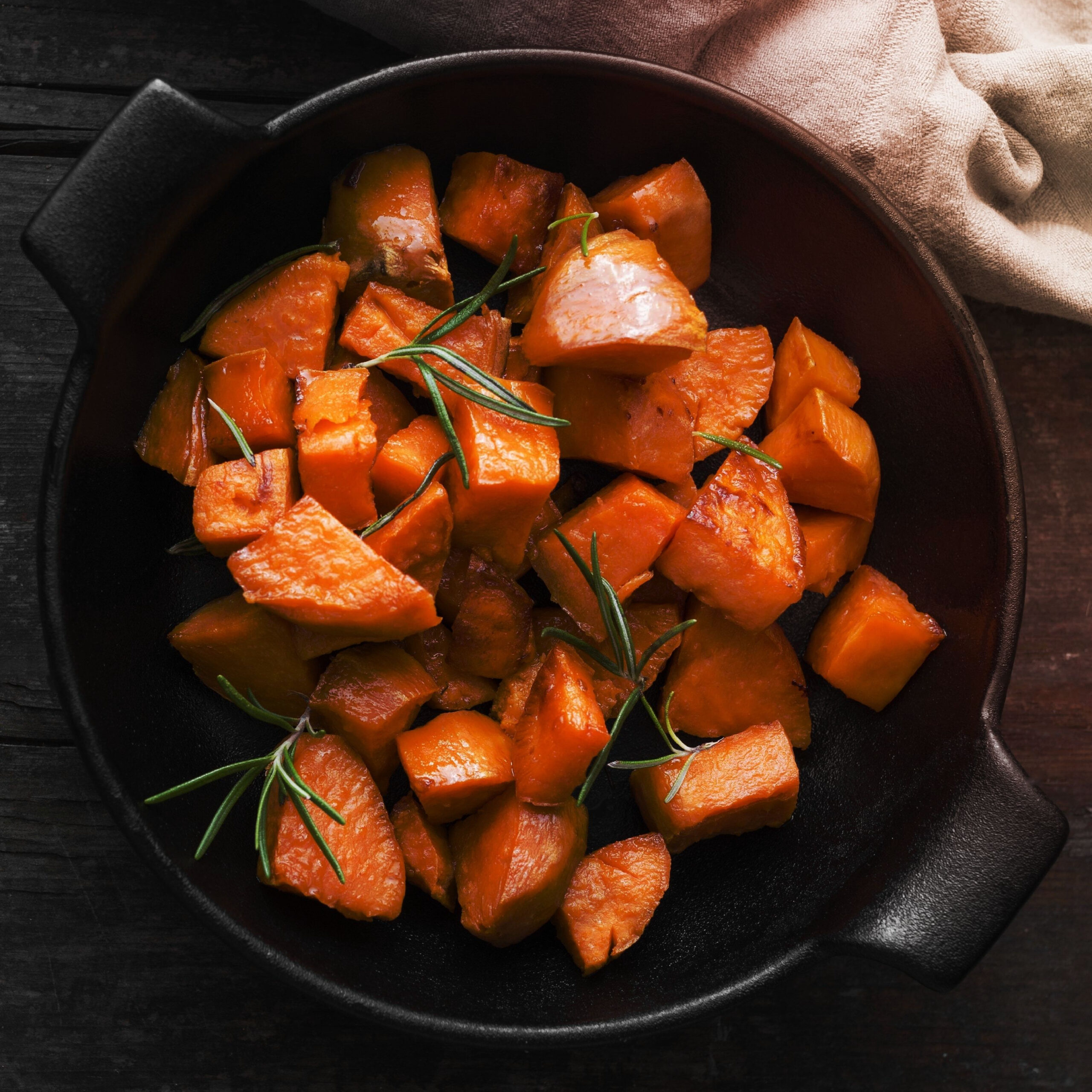
12. Sweet Potato with Skin
We love sweet potatoes and all of their health benefits—including the high fiber content. Moody offers one word of advice regarding this veggie: "Don't make the mistake of peeling your potatoes if you want to increase your fiber intake! You can mash the peels into mashed potatoes or eat them like they are – half of the potatoes' fiber is in the peel, so it can add a nice texture to your dishes," she says. "Furthermore, potatoes cause a more profound feeling of fullness than other carbohydrate sources and may even be more satiating than some lean proteins, according to studies done on satiety."












